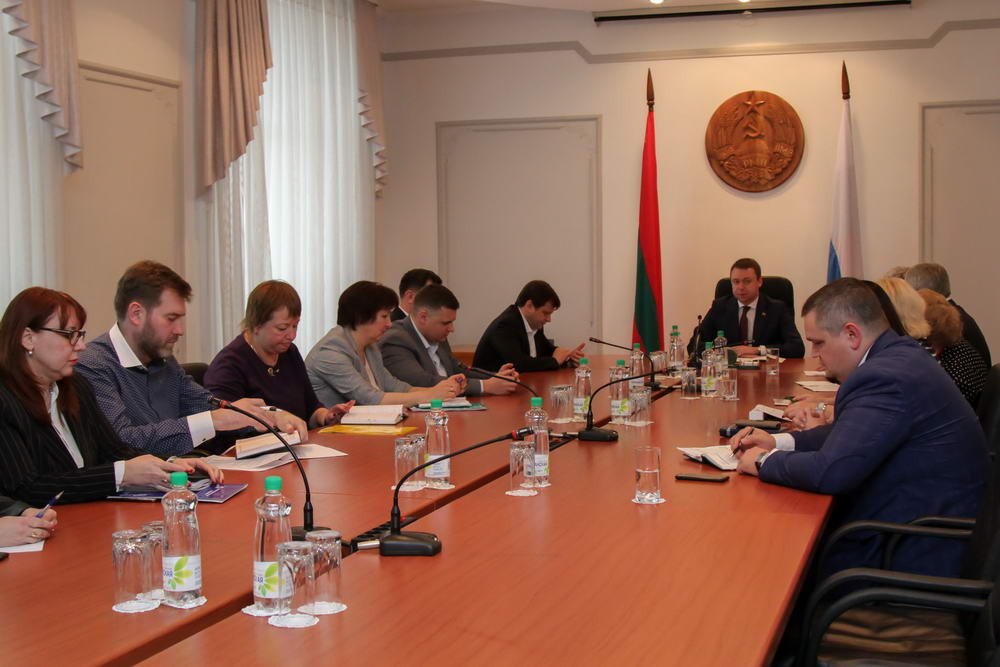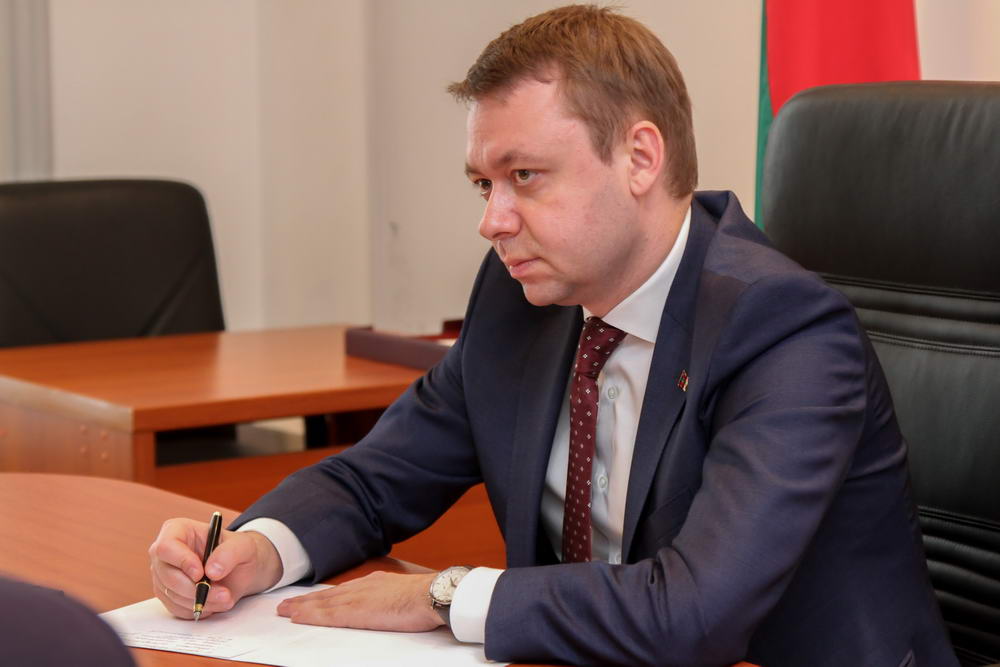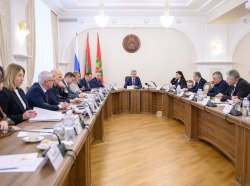Tiraspol, 4 April. /Novosti Pridnestrovya/. The government is working on the issue of crediting domestic manufacturers. As noted by prime minister Alexander Martynov at a meeting with representatives of the banking sector, the Union of Industrialists, Agrarians and Entrepreneurs of Pridnestrovie (SPAPP), the Chamber of Commerce and Industry, this issue is extremely important for economic growth.
The difficult situation in the budgetary system faced throughout 2017 had a negative impact on the liquidity of banks. However, today the situation has stabilized thanks to measures taken by the state, the governmnet's press service reports.
According to vice-president of the SPAPP Yury Cheban, enterprises need long "cheap" fund for upgrading equipment in order to increase the competitiveness of their products in terms of their range and prices.
CEO of ZAO Vestra Tamara Poloz said that the factory needs to replace the worn-out equipment which was installed in the 1960-80s. Representatives of the processing and machine-building industries also spoke about the need to upgrade their capacities.
As for the loan interest rate, its optimal level is deemed by local producers at about 4-5%. The initial need for loans varies between €10-15 million, Yury Cheban stressed.
As PRB chairman Vladislav Tidva said, the central bank and the government are ready to move forward towards large enterprises, but the risks of credit institutions should also be taken into account so as not to get "bad" debts. One of the significant aspects that banks are concerned about is collateralised property. According to Svetlana Kalugina, chair of the board of ZAO "Pridnestrovian Savings Bank", securing loans is "a key aspect of ensuring the bank's risks".
An additional complication is that the value of the assets of enterprises has decreased because of the economic decline that had lasted for two previous years, Vladislav Tidva said.
"The value of real estate has declined; the efficiency of enterprises have deteriorated as a result of the monetary and fiscal policies that had been carried out in previous years. They are generating less cash flow now. And the less they generate, the less their assets cost," Tidva explained.
The heads of Pridnestrovian banks also discussed the limited finances on their accounts, which "are extremely difficult to accumulate," Eximbank CEO Viktor Dobrov noted.
The banks, however, have a certain source of funds, and the main thing is to find a balanced approach that suits all parties.
The prime minister proposed to subsidise the loan interest rate. Funds for these purposes - approximately 6-7 million roubles - are proposed to be included in the national budget. The corresponding governmental initiative will be soon submitted to the Supreme Council.
"If it [mechanism] works, if we see enterprises update their long-term assets while drawing up more optimistic production programs, then this amount can be increased. [It is necessaary] to increase not at the expense of resources of the central bank but rather to seek where this money can be saved," said the prime minister.
The interest rate subsidised by the state and the borrower, as well as the priority sectors to which this norm will apply, will be further elaborated by the government together with the SPAPP and the banking community.
Such a mechanism of state support will provide an opportunity to create new jobs and increase tax deductions to the state coffers, Alexander Martynov concluded.











